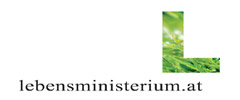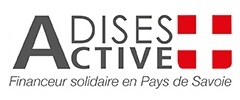Success of WECF and AWHHE side-event
50 participants at WECF and AWHHE side-event during Ministerial Conference. Agreements on cooperation on ecological waste-water treatment and socially just water-tariffs
07.12.2005 |Sascha Gabizon
The Ministerial Conference on Financing Water and Sanitation in the EECCA region which took place from 17 to 18 November 2005 in Yerevan, Armenia. Delegations from 40 countries in Western and Eastern Europe took decisions to improve and increase investments in water supply and sanitation for the EECCA region, in view of reaching the Millenium Development Goal nr. 7.
As one of the 4 official side-events, WECF and AWHHE hosted a side-event on “Financing rural water supply and sanitation” in the Marriot Hotel on November 18th 2005.
50 participants from Armenian and international NGOs, Armenian water companies, French water companies, donor countries, Armenian universities and government institutes and local authorities took part in the side-event.
Sascha Gabizon, Director of Women in Europe for a Common Future (WECF), a network of 70 European women’s environment organisations in EU and EECCA 30 countries, gave an introduction. She presented the Millennium Development Goals, in particular Goal 7 on water and sanitation and how the Ministers of Health and Environment had chosen at the Budapest Ministerial Conference 2004, to make the goal more ambitious for the EECCA region.
However, the OECD studies on the MDGs in the EECCA region show that instead of moving towards achieving them, many countries are moving away from reaching the goal. For example, OECD shows how 10% of the rural population in Kirghistan has lost access to drinking water in the period 2000-2003. However, even for maintaining the current level of access to centralized drinking water in cities, the current funds invested are not enough. In some countries where the situation is particularly difficult, such as in the case of Georgia, the state would have to spend 3,5% of it’s annual budget to maintain access in cities.
Financing rural water supply seems financially in-achievable. Sascha Gabizon ended with the conclusion that currently there is hardly any funding for water supply in rural areas, that other sources of funding need to be found, and that bringing down the cost of water supply and sanitation in rural areas is a prerequisite for finding sufficient funding.
Elena Manvelyan Director of “Armenian Women for Health and a Healthy Environment” (AWHHE) a member NGO of partners, presented a case study on rural water supply in Armenia. The case study looked at the village Fonton (1000 inhabitants) where about 200 people were hospitalized after using an old drinking water well in the summer of 2003. With funding by the World Bank a drinking water well was restored and a central pipe was installed in the village. However, the system was not used for almost 2 years, as private households had not connected to the system.
There was no information, nor small credits available for the households to make the connection, which costs 24 USD. However, with average incomes of 15 USD per month, paying the connection cost is often impossible, they need to have access to a credit, which can be paid back in little amounts. AWHHE and WECF cooperate with the Armenian water company to inform the citizen’s and help them install the household connections. Cooperation between water companies and NGOs can be essential for efficient water supply systems in rural areas.
Anna Tsvietkova Water Programme Coordinator “Mama -86 Ukraine - NGO” presented the case study “reducing the cost of access to drinking water and sanitation in rural areas of Ukraine”.
Diana Iskreva - Waste-water as a source of poverty – benefits of low-cost treatment; the example of Bulgaria NGO “Earth Forever” Bulgaria.
Statements about the case studies presented were given by Representatives of the World Bank office, Armenia, the Yerevan Water company and a French partner company of the Armenian Water company.
This was followed by discussion with 10 other Armenian NGOs, donor agencies like US-AID, and representatives of government and science.
Two key issues were discussed:
- Socially just and Economically Viable Water Tariffs
- Decentralized, affordable, ecological sanitation and waste-water treatment
Water Tariffs is an issue that needs much more debate and public participation, in particular about cross-subsidising to help the lowest income families. Good examples from around the world exist. For example, French companies work in many areas with a first cubic meter which is sold below cost price, so that the first few liters per person are almost for free, allowing for access to water even for the poorest.
Ecological Sanitation is seen as a solution for sanitation in rural areas, allowing for affordable, hygienic high-standard sanitation, even indoors, in areas with no centralized sewage systems.
For more information see also www.awhhe.org
































